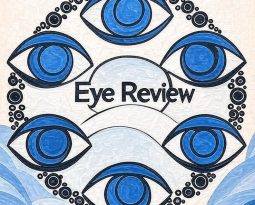Massachusetts Patent of the Month – October 2024
Emulate, Inc. has pioneered a groundbreaking method of culturing human neural and vascular cells within a microfluidic device, enhancing the modeling of the blood-brain barrier (BBB) and spinal cord systems. This innovation uses a dual microchannel setup, where human ventral spinal neuron progenitor cells are seeded in one channel, and brain microvascular endothelial cells (BMECs) in the other, separated by a membrane. By maintaining a flowing culture media in the system, the method supports the differentiation of spinal motor neurons, improving the maturation and functionality of these cells compared to traditional culture systems.
The approach effectively mimics the structural and functional properties of the BBB by promoting direct contact between neurons and vascular cells. This co-culture environment, facilitated by the microfluidic device, allows for better representation of physiological conditions, driving the cells to form tighter junctions and more mature electrophysiological properties. Moreover, the process supports the inclusion of other cell types, such as glial cells, which further enhance the model’s accuracy in replicating the neurovascular unit.
What sets this method apart is the ability to precisely control the microenvironment. The microchannels’ design and the use of specific extracellular matrix proteins ensure that neurons and vascular cells mature in a more robust and physiologically relevant way. These advancements have significant implications for drug testing, allowing for more accurate simulations of how therapies might interact with the BBB and affect the central nervous system. Furthermore, the ability to test patient-derived cells opens doors to personalized medicine, especially for neurological diseases like ALS, Parkinson’s, and Alzheimer’s.
With this technology, Emulate, Inc. is pushing the boundaries of in vitro models, creating systems that can better predict how drugs will behave in humans, while also providing insights into the mechanisms of neurodegenerative diseases.
Are you developing new technology for an existing application? Did you know your development work could be eligible for the R&D Tax Credit and you can receive up to 14% back on your expenses? Even if your development isn’t successful your work may still qualify for R&D credits (i.e. you don’t need to have a patent to qualify). To find out more, please contact a Swanson Reed R&D Specialist today or check out our free online eligibility test.
Who We Are:
Swanson Reed is one of the U.S.’ largest Specialist R&D tax advisory firms. We manage all facets of the R&D tax credit program, from claim preparation and audit compliance to claim disputes.
Swanson Reed regularly hosts free webinars and provides free IRS CE and CPE credits for CPAs. For more information please visit us at www.swansonreed.com/webinars or contact your usual Swanson Reed representative.
What is the R&D Tax Credit?
The Research & Experimentation Tax Credit (or R&D Tax Credit), is a general business tax credit under Internal Revenue Code section 41 for companies that incur research and development (R&D) costs in the United States. The credits are a tax incentive for performing qualified research in the United States, resulting in a credit to a tax return. For the first three years of R&D claims, 6% of the total qualified research expenses (QRE) form the gross credit. In the 4th year of claims and beyond, a base amount is calculated, and an adjusted expense line is multiplied times 14%. Click here to learn more.
R&D Tax Credit Preparation Services
Swanson Reed is one of the only companies in the United States to exclusively focus on R&D tax credit preparation. Swanson Reed provides state and federal R&D tax credit preparation and audit services to all 50 states.
If you have any questions or need further assistance, please call or email our CEO, Damian Smyth on (800) 986-4725.
Feel free to book a quick teleconference with one of our national R&D tax credit specialists at a time that is convenient for you.
R&D Tax Credit Audit Advisory Services
creditARMOR is a sophisticated R&D tax credit insurance and AI-driven risk management platform. It mitigates audit exposure by covering defense expenses, including CPA, tax attorney, and specialist consultant fees—delivering robust, compliant support for R&D credit claims. Click here for more information about R&D tax credit management and implementation.
Our Fees
Swanson Reed offers R&D tax credit preparation and audit services at our hourly rates of between $195 – $395 per hour. We are also able offer fixed fees and success fees in special circumstances. Learn more at https://www.swansonreed.com/about-us/research-tax-credit-consulting/our-fees/
Choose your state


















